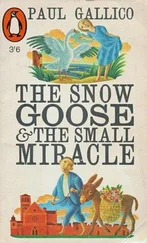Frank Nason - The Blue Goose
Здесь есть возможность читать онлайн «Frank Nason - The Blue Goose» — ознакомительный отрывок электронной книги совершенно бесплатно, а после прочтения отрывка купить полную версию. В некоторых случаях можно слушать аудио, скачать через торрент в формате fb2 и присутствует краткое содержание. Жанр: foreign_prose, Зарубежные любовные романы, на английском языке. Описание произведения, (предисловие) а так же отзывы посетителей доступны на портале библиотеки ЛибКат.
- Название:The Blue Goose
- Автор:
- Жанр:
- Год:неизвестен
- ISBN:нет данных
- Рейтинг книги:3 / 5. Голосов: 1
-
Избранное:Добавить в избранное
- Отзывы:
-
Ваша оценка:
- 60
- 1
- 2
- 3
- 4
- 5
The Blue Goose: краткое содержание, описание и аннотация
Предлагаем к чтению аннотацию, описание, краткое содержание или предисловие (зависит от того, что написал сам автор книги «The Blue Goose»). Если вы не нашли необходимую информацию о книге — напишите в комментариях, мы постараемся отыскать её.
The Blue Goose — читать онлайн ознакомительный отрывок
Ниже представлен текст книги, разбитый по страницам. Система сохранения места последней прочитанной страницы, позволяет с удобством читать онлайн бесплатно книгу «The Blue Goose», без необходимости каждый раз заново искать на чём Вы остановились. Поставьте закладку, и сможете в любой момент перейти на страницу, на которой закончили чтение.
Интервал:
Закладка:
"Or elope," interrupted Élise. "Don't skip that."
"Go to Bennie, the old man, or to anyone, if you can't find me."
"What a speech, Zephyr! Did any of it get away?"
Zephyr was too much in earnest even to smile.
"Remember what I say."
"You put in an awful lot of hard words. But then, I don't need to remember. I may change my mind. Maybe there'd be a whole lot of fun after all in marrying M'sieu. I'd just like to show him that he can't scare me the way daddy does mammy. It would be worth a whole box of chips. On the whole I think I'll take daddy's advice. Bye-bye, Zephyr." She again picked up her scattered flowers and went dancing and skipping down the trail. At the turn she paused for an instant, blew Zephyr a saucy kiss from the tips of her fingers, then passed out of sight.
A voice floated back to the quiet figure by the fire.
"Don't feel too bad, Zephyr. I'll probably change my mind again."
CHAPTER IV
The Watched Pot Begins to Boil
Of all classes of people under the sun, the so-called labouring man has best cause to pray for deliverance from his friends. His friends are, or rather were, of three classes. The first, ardent but wingless angels of mercy, who fail to comprehend the fact that the unlovely lot of their would-be wards is the result of conditions imposed more largely from within than from without; the second, those who care neither for lots nor conditions, regarding the labourer as a senseless tool with which to hew out his own designs; the third, those who adroitly knock together the heads of the labourer and his employer and impartially pick the pockets of each in the general mêlée which is bound to follow.
The past were is designedly contrasted with the present are , for it is a fact that conditions all around are changing for the better; slowly, perhaps, but nevertheless surely.
The philanthropic friend of the labourer is learning to develop balancing tail-feathers of judgment wherewith to direct the flights of wings of mercy. The employer is beginning to realise the beneficial results of mutual understanding and of considerate co-operation, and the industrious fomenter of strife is learning that bones with richer marrow may be more safely cracked by sensible adjustment than with grievous clubs wielded over broken heads.
Even so, the millennium is yet far away, and now, as in the past, the path that leads to it is uphill and dim, and is beset with many obstacles. There are no short cuts to the summit. In spite of pessimistic clamours that the rich are growing richer and the poor poorer, frothy yowls for free and unlimited coinage at sixteen to one, or for fiat paper at infinity to nothing, the fact remains that, whereas kings formerly used signets for the want of knowledge to write their names, licked their greasy fingers for lack of knives and forks, and starved in Ireland with plenty in France, the poorest to-day can, if they will, indite readable words on well-sized paper, do things in higher mathematics, and avoid the thankless task of dividing eight into seven and looking for the remainder.
Potatoes are worth fifty cents a bushel. Any yokel can dig a hole in the ground and plant the seed and in due time gather the ripened tubers. The engineer who drives his engine at sixty miles an hour, flashing by warning semaphores, rolling among coloured lights, clattering over frogs and switches, is no yokel. Therefore, because of this fact, with the compensation of one day he can, if he so elects, buy many potatoes, or employ many yokels.
Had Sir Isaac Newton devoted to the raising of potatoes the energy which he gave to astronomy, he might have raised larger potatoes and more to the hill than his yokel neighbour. But, his conditions having been potatoes, his reward would have been potatoes, instead of the deathless glory of the discovery and enunciation of the law of gravity. The problem is very simple after all. The world has had a useless deal of trouble because no one has ever before taken the trouble to state the problem and to elaborate it. It is just as simple as is the obvious fact that x plus y equals a .
There is a possibility, however, that we have been going too fast, and have consequently overlooked a few items of importance. We forgot for the moment, as often happens, that the factors in the problem are not homogeneous digits with fixed values, but complex personalities with decided opinions of their own as to their individual and relative importance, as well as pugnacious tendencies for compelling an acceptance of their assumptions by equally pugnacious factors which claim a differential valuation in their own favour. This consideration presents a somewhat different and more difficult phase of the problem. It really compels us to defer attempts at final solution, for the time being, at least; to make the best adjustment possible under present conditions, putting off to the future the final application, much on the same principle that communities bond their present public possessions for their own good and complacently bestow upon posterity the obligation of settling the bills. Considered in this light, the end of the struggle between capital and labour is not yet. Each is striving for the sole possession and control of things which belong to neither alone. Each looks upon the other not as a co-labourer but as a rival, instead of making intelligent and united effort for an object unattainable by either alone. If capital would smoke this in his cigar and labour the same in his pipe, the soothing effects might tend to more amicable and effective use of what is now dissipated energy.
However, universal panaceas are not to be hoped for. The mailed fist puts irritating chips upon swaggering shoulders, and the unresentful turning of smitten cheeks is conducive to a thrifty growth of gelatinous nincompoops.
The preceding status quo existed in general at the Rainbow mines and mill, besides having a few individual characteristics peculiarly their own. Miners and millmen, for the most part recent importations from all countries of Europe, had come from the realms of oppression to the land of the free with very exaggerated notions of what freedom really was. The dominant expression of this idea was that everyone could do as he pleased, and that if the other fellow didn't like it, he, the other fellow, could get out. The often enunciating of abstract principles led to their liberal application to concrete facts. In this application they had able counsel in the ambitious Morrison.
"Who opened these mountain wilds?" Morrison was wont to inquire, not for information, but for emphasis. "Who discovered, amidst toils and dangers and deprivations and snowslides, these rich mines of gold and silver? Who made them accessible by waggon trail and railroads and burros? Who but the honest sons of honest toil? Who, when these labours are accomplished, lolls in the luxurious lap of the voluptuous East, reaping the sweat of your brows, gathering in the harvest of hands toiling for three dollars a day or less? Who, but the purse-proud plutocrat who sits on his cushioned chair in Wall Street, sending out his ruthless minions to rob the labourer of his toil and to express his hard-won gold to the stanchless maw of the ghoulish East. Rise, noble sons of toil, rise! Stretch forth your horny hands and gather in your own! Raise high upon these mountain-peaks the banner of freedom's hope before despairing eyes raised from the greed-sodden plains of the effete East!"
Whereat the sons of toil would cheer and then proceed to stretch forth hands to unripened fruits with such indiscriminating activity that both mine and mill ceased to yield expenses to the eastern plutocrat, and even the revenues of the Blue Goose were seriously impaired, to the great distress of Pierre.
Читать дальшеИнтервал:
Закладка:
Похожие книги на «The Blue Goose»
Представляем Вашему вниманию похожие книги на «The Blue Goose» списком для выбора. Мы отобрали схожую по названию и смыслу литературу в надежде предоставить читателям больше вариантов отыскать новые, интересные, ещё непрочитанные произведения.
Обсуждение, отзывы о книге «The Blue Goose» и просто собственные мнения читателей. Оставьте ваши комментарии, напишите, что Вы думаете о произведении, его смысле или главных героях. Укажите что конкретно понравилось, а что нет, и почему Вы так считаете.












